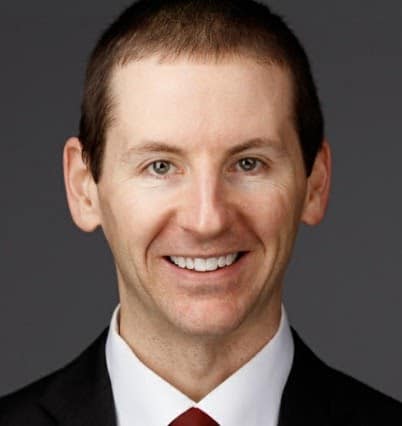To make Wealthtender free for readers, we earn money from advertisers, including financial professionals and firms that pay to be featured. This creates a conflict of interest when we favor their promotion over others. Read our editorial policy and terms of service to learn more. Wealthtender is not a client of these financial services providers.
➡️ Find a Local Advisor | 🎯 Find a Specialist Advisor

Are you thinking about changing jobs? You’re not alone.
There have been a record number of job openings in recent months. The nationwide “quit rate” remains near all-time highs as the “work from anywhere” trend appears here to stay.
If you count yourself among the millions of Americans thinking about changing jobs, you have many decisions to make, including several that could significantly impact your personal finances.
Working with a financial advisor during major life events, such as a career transition, can go a long way toward ensuring you remain on good financial footing. Whether you choose to work with a local financial advisor, hire a specialist advisor, or navigate the process on your own, this article will help you learn the smart money moves to make before you turn in your notice of resignation and as you get started working for your new employer.
Learn More: 2022 Workforce Statistics
The March 2022 reading of the Bureau of Labor Statistics’ quit rate was 3.0% while the number of job openings was at a series high of 11.5 million on the last business day of March. Meanwhile, the Kastle Systems “Back-to-Work” barometer rebounded after a brief April dip but has topped out at just 43%.
The Pandemic Changed the Workforce
But why are people moving with such great haste? Beyond the added flexibility in working location as a result of the pandemic, workers are simply getting paid more to switch jobs. In the first quarter of 2022, job-switchers earned a whopping 8.7% annualized pay increase, on average, while jobholders’ salaries inched up just 6%, according to ADP. It’s as if people were paid to change jobs. Moreover, Americans got the entrepreneurial itch over the last two-plus years. According to the U.S. Census Bureau and St. Louis Federal Reserve, high propensity business applications are running well above pre-pandemic levels.
A Surge in New Business Formation
Clearly, the pivot to remote work drove growing families away from bustling cities to more relaxed suburban and even rural spots across the country. Another reason folks are quitting like never before is simply to retire early. According to The Wall Street Journal, the pandemic boosted retirements by about 1.5 million. Soaring stock prices and a real estate boom brought about a wave of financial independence for many diligent savers and investors.
Steps to Take Before Leaving Your Job
The landscape for working Americans has undoubtedly shifted. These major changes in the way we do business and manage work-life balance can be nerve-wracking. You must be thoughtful when going about a potential job change to ensure you’re not inadvertently leaving money on the table. Here are several items to consider before you leave your current job:
- Talk to a financial planner who can help you. There are many moving financial pieces involved with a mid-career job switch. There might be items you will not see coming. That’s why working with an experienced fiduciary advisor is so critical. One foul-up can cost you thousands of dollars.
- Know your employer’s benefit vesting schedules. Timing is everything when leaving an employer, particularly during your peak earning years. You want to be sure your exit is not immediately before a vesting cliff date. Perhaps sticking around just a month or two longer will result in clocking out for the last time with a whole lot more cash.
- Think about rolling over your 401(k) plan. Americans accumulated more than $1 trillion in “forgotten” 401(k) plan assets, according to Capitalize. Don’t become part of the statistic! By rolling over your old 401(k) into an IRA or rolling it into your new employer’s plan, you can keep your financial house in order when you start at a new company.
- Consider ramifications to your stock options. Tally up what stock options you have earned and have a plan with respect to striking on them. Stock options strategy is one area where working with an advisor well-versed in this type of employee benefit common among highly compensated workers can really pay off.
- Time your bonus right. Be sure to work with your current employer to receive any variable compensation you deserve. Know the qualification periods and payout dates. It would be unfortunate to overlook a key date and wind-up missing bonus money by just a few days.
- What about healthcare? The elephant in the room when making a career move is what will happen with your healthcare coverage. It can be a major risk if you have a growing family. It’s vital that you work with your current and new employers so that you are not left without insurance for a period.
What to Do Upon Starting a New Job
Fast-forward, and you’ve hopped jobs while ensuring all your financial ducks were in a row. Now you must get your house in order at the new company. There are several boxes to check before you can settle in a financially secure position.
First, sit down with a financial advisor to prioritize your situation. They can help you assess your goals, risk tolerance, time horizon, tax situation, and any unique considerations for you and your family.
Next, get your payroll deductions right – the last thing you want is to find out the following tax-filing season that you owe a big amount to the IRS (with possible penalties).
It’s also a prudent move to ensure you have a portion of your new salary going toward long-term savings. You can use your new employer retirement plan to invest for the future and capture any matching contributions.
While most people know they should contribute to a 401(k), the investment benefits of a Health Savings Account (HSA) are somewhat less understood since it is a relatively new account type. Check with your Human Resources department to learn about how the company’s HSA works – there might be an employer match with this account, too. HSAs feature the “triple-tax advantage” not seen in any other savings vehicle.
Ask the Experts: Financial Advisors Offer Tips for Job Changers
We asked financial advisors in the Wealthtender community to share their recommendations for job changers to consider both before quitting their current job and upon getting hired by their new employer. Click the Show More links below to view their expert insights.

Consider and evaluate any unvested 401k match, stock options, or restricted stock units before leaving a company. You may be leaving funds on the table. Also, if you are leaving a position with a non-qualified deferred compensation plan, it may become 100% taxable upon leaving. Talk to your advisor about how this job change may impact your overall financial plan.
Emily Rassam, CFP®, CRPS, AIFA, NSSA, CDAA | Archer Investment Management

If you have a Flexible Spending Account (FSA) take time to use up your elected contributions for the year since they are use-it-or-lose-it. You can buy anything at the FSA Store including sunscreen, menstrual products, and first aid. Typically employers provide a 1-2 week grace period after leaving to use up your FSA dollars — double check your employer’s rules. If you have a Health Savings Account instead, these funds stay with you or can even be rolled over to a new employer if you will continue to be using a High Deductible Health Care Plan (HDHP).
Note how much you contributed so far to your 401(k) retirement plan. If you’re trying to max out for the year take care not to over contribute. The max for the year, no matter how many employers you had is $20,500.
It’s a great time to review your W-4 elections. Don’t assume that what you used in the past will be the best option for you at your new job and new salary. Use the IRS tax withholding calculator online (https://apps.irs.gov/app/tax-withholding-estimator) to figure out how best to fill out your W-4. It could also be a good time to ask your accountant or financial advisor for help adjusting withholdings.
Cady North, MBA, CFP® | North Financial Advisors

BEFORE quitting their current job, what actions do we recommend people take?
Develop an income plan to determine how long you have before your cash is depleted. The last thing you want to do is invade your retirement accounts prematurely to pay the bills. You would likely incur taxes and penalties and potentially jeopardize your retirement goals. You also want to review your health insurance options to avoid any gaps in coverage. Incurring a major medical expense without coverage could be catastrophic to your financial plan.
At the outset of STARTING their new job, what actions do we recommend people take?
Conduct a thorough review of your new benefits plan. Do they offer a high deductible health insurance plan? If you’re in good health and can pay the deductible from savings, you can save money on premiums and contribute towards a health savings account. These accounts offer many tax benefits and often receive employer contributions. Does your new company offer a match on retirement contributions? You will want to contribute up to the company match to capture that “free” money and even consider a Roth 401(k) if offered and warranted based on your tax situation.
Brett Tushingham, CFP® | Farther
Conclusion
Your head might be spinning. There are many considerations before, during, and after you change jobs. The good news? You are not alone.
More Americans than ever are taking the bold (and often lucrative) move to a new job or even career. Whether you are simply transitioning from one employer to a similar role at another company or are starting your own business, working with a financial advisor ensures that you do not miss a step. Managing risk, making the most of your old and new benefits packages, and keeping an eye on your long-term financial plan are critical areas sometimes overlooked by today’s job switchers.

About the Author
Mike Zaccardi, CFA®
Mike is a freelance writer for financial advisors and investment firms. He’s a CFA® charterholder and Chartered Market Technician®, and has passed the coursework for the Certified Financial Planner program.
Learn More About MikeTo make Wealthtender free for readers, we earn money from advertisers, including financial professionals and firms that pay to be featured. This creates a conflict of interest when we favor their promotion over others. Read our editorial policy and terms of service to learn more. Wealthtender is not a client of these financial services providers.
➡️ Find a Local Advisor | 🎯 Find a Specialist Advisor




